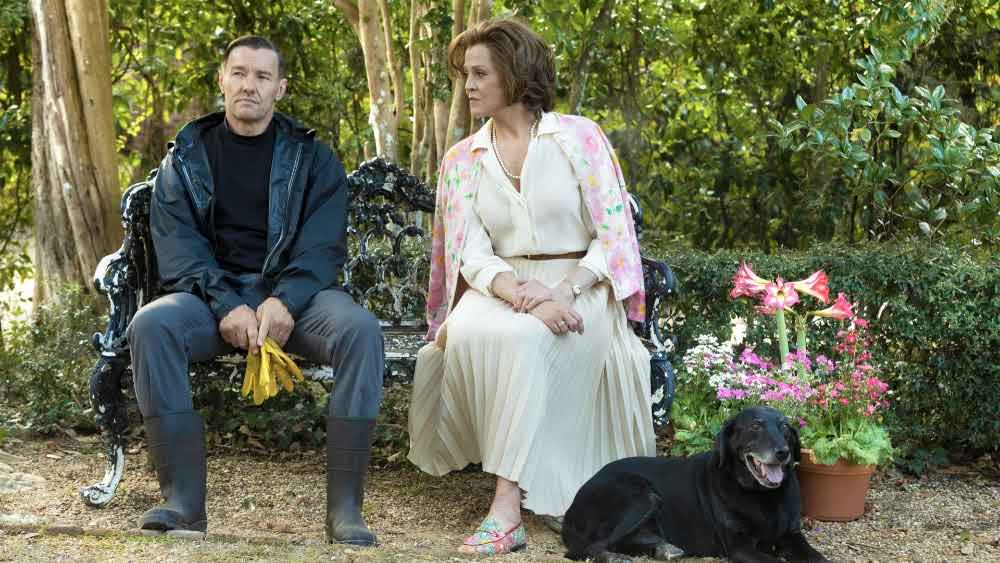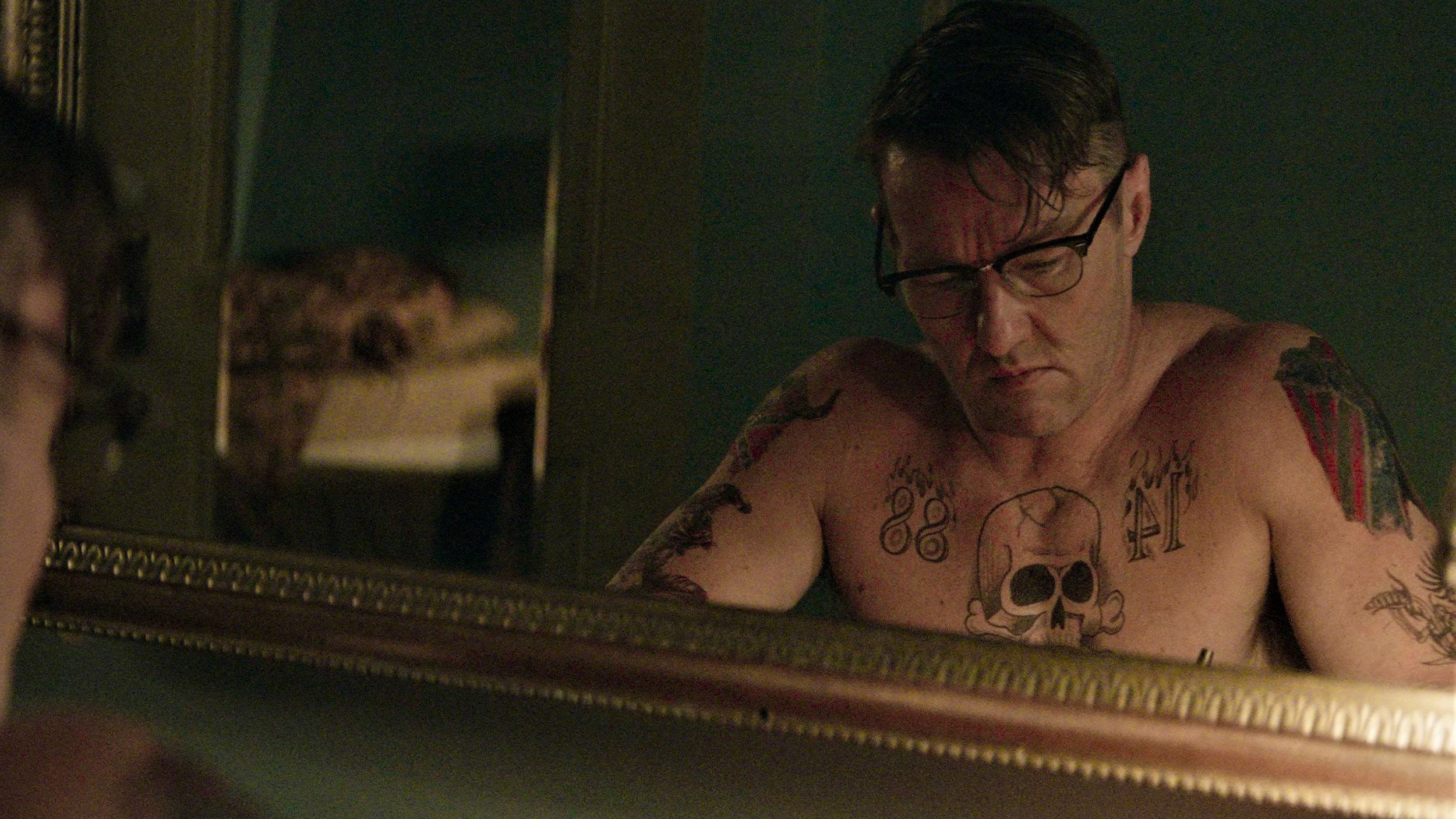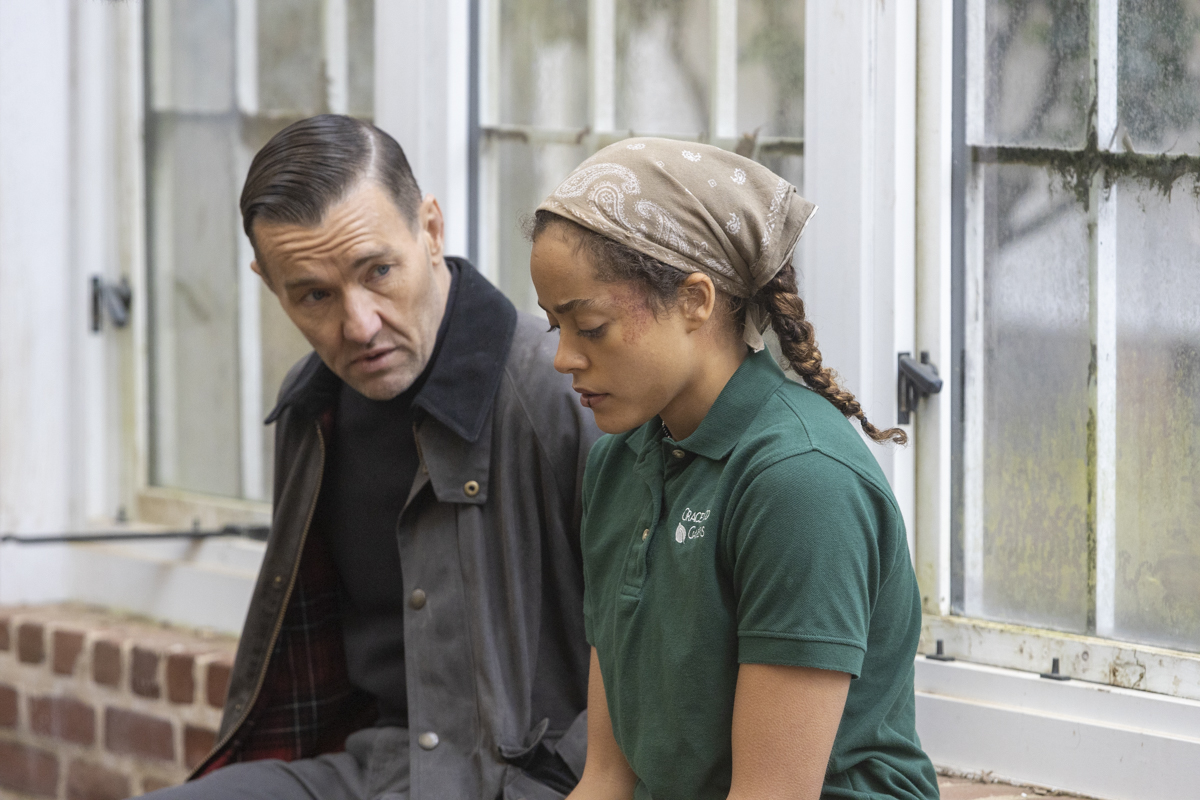Over a five-year period that now appears to have concluded, Paul Schrader has been working on an informal trilogy of films that all feature a lone wolf with baggage from his past, executed in a transcendental style that Schrader has written about and listed as an influence. Even though the travails of a white man are not particularly consistent with today’s cinematic appetite, the films have been well received – and at least do each feature a significant character of colour, to offset accusations that Schrader might be navel gazing.
Master Gardener concludes the trilogy, by Schrader’s own admission. Although individual mileage always varies on a project like this, a critic is of course obliged to state his or her own opinions as though they were fact. And so it is that Master Gardener lands in the middle of First Reformed (2018) and The Card Counter (2021) in terms of its effectiveness at exploring these themes. The former contemplates a preacher’s loss of faith in the wake of environmental decline he cannot unsee, and it was one of the best films of that year. The latter is the study of an efficient gambler who leaves little trace of himself as he tries to escape a past as a low-level war criminal. Schrader’s focus was strong in the first, fuzzier in the second.
While each of those films dealt with a social ill championed by the political left, Master Gardener takes aim at perhaps the most timeless of social ills. It’s no spoiler to say the head gardener at a lush estate was once an active member of a white power group, though Schrader delays the reveal until the man removes his shirt about 15 minutes in. This exposes – to no one but himself at this juncture – a back riddled with swastikas and other signifiers of hate. It’s Schrader’s first attempt to confront the audience, to reconcile the apparently gentle and responsible man we’ve met with the awful crimes of his past, and to wonder aloud whether one can ever truly atone for such reprehensible sins.
Narvel Roth (Joel Edgerton) has been working for Norma Haverhill (Sigourney Weaver) for some time now, making her gardens the envy of all her socialite friends, and preparing them for an annual show in which they blossom into their full glory. Tending the plants is not the only service he provides her. She’s aware of at least some parts of his shady past and his desire for it not to catch up with him, and she gives him both a sanctuary and a chance for respect in a field he loves. He supervises a crew and walks her grounds with substantial pride. In exchange, he’ll go to bed with her on request, despite their significant age difference.
One day she asks another favour. Her grand niece, Maya (Quintessa Swindell), needs a chance to get her life back on track after a bout with drugs and a rotten attitude about the world. As Norma points out, perhaps testing Narvel’s reaction, Maya is of “mixed blood,” and she’s now without any parents after the death of her mother and a father who hasn’t been in the picture since she was a baby. She wants Narvel to provide an apprenticeship to Maya, but if he’s not careful, Narvel might start rendering her the same sorts of services he renders Norma. Norma’s jealousy won’t abide by that, and Narvel realises that the practical limitation to any sort of relationship with Maya is written all over his back.
It’s easy from the opening moments to see how this fits into Schrader’s informal trilogy, or more appropriately, how it bookends it. In fact, the extent to which Schrader seems to be revisiting past successes is evident in the journal Narvel keeps. First Reformed’s Ernst Toller kept an identical journal, and wrote in it identically, in a spare room at night by a single lamp light, while narrating the very thoughts he’s recording on paper. So thickly is this laid on that it’s almost a laughable failure to differentiate Master Gardener from this earlier work, arguably his most critically acclaimed.
This first impression doesn’t last. The film eases into its own rhythms quickly enough, presenting a different sort of dynamic between Narvel and Maya than those between other Schrader heroes and their female muses, which go back as far as Travis Bickle and the sex worker Iris. Narvel may be trying to save Maya, but it wasn’t his idea. More importantly, she represents an apology he needs to make, to truly cleanse himself of a past that rears its head through flashbacks to the things Narvel actually did, when Narvel wasn’t his name.
One wonders, though, if Schrader is being as honest with Narvel as he needs to be. Although we see these flashbacks, we don’t get a sense of how Narvel may still be struggling with attitudes that were deeply enough ingrained that he chose to carve them on his body. We aren’t given enough of a chance to doubt whether Narvel is actually repentant. It’s as though one day he decided to stop hating Blacks and Jews and start loving flowers, and the rest is history. That’s rather too simplistic for what Schrader has been trying to do with his last few films, in which the characters had lesser demons but struggled more openly with them.
There’s an earnestness, though, in Schrader’s Catholic belief that even a death bed repentance and embrace of God is enough to earn salvation. (Schrader himself is Calvinist, but they broke from the Catholic church.) It’s probably obvious that the road is not going to be clear and Narvel’s going to have to do something to earn it, but it may also be that he ends up in a better place that Schrader’s other run of doomed loners. If so, maybe it’s the sort of coda Schrader would like to write for his own career as his 80th birthday looms on the horizon. In a career that’s featured great stretches of pessimism and doubts about human nature, maybe in the end he does think we’re capable of change.
Master Gardener opens in cinemas on Thursday.


